Crossroads MVP
Paths - Magical
 Casting Magic
Casting Magic
Casting Magic usually requires the character to have a free hand and/or to be able to speak. If a caster is bound, they are not able to cast magic, though some GMs may allow Unstable Magic.
Most magic is performed at the whim of higher beings and so effort should be made to retain favour from these beings. These powers may be temporarily or even permenently revoked under certain circumstances, though this should only be agreed upon by all players.
 Spells in Combat
Spells in Combat
In Combat, casting spells is treated as an Attack, using a Double Action, though a Quick Attack Action may also be used with the d1 penalty on the cast roll.
If a spell is cast targeting the caster (Self), there is no d1 penalty on the cast roll for a Quick Attack.
 Focus Charm
Focus Charm
Casters usually require a Focus Charm. A Focus Charm is the device that the caster uses to focus the mana into a spell. This may take many forms, though it is usually a small trinket such as an amulet or a ring. Each school of magic would require its own focus, so a caster may have many charms. Most spells are cast from either the caster’s hands or Focus Charm. If a focus is lost or stolen, a new one can be made with the correct supplies and a large amount of time in order to attune the item.
In gameplay terms, this rarely comes into effect unless the Focus Charm is lost or stolen. Focus Charms will usually be taken from Casters any time that Weapons would be taken, such as when captured or meeting important individuals. Certain spells or items may be used to detect Focus Charms.
 Concentration
Concentration
Certain spells require Concentration or Total Concentration. Casters must spend some or all of their turn to maintain concentration, and certain actions may interrupt or break concentration.
See Lists - Concentration for more information.
 "Does X count as Y?"
"Does X count as Y?"
Many spells affect certain materials or targets. If there is ever any doubt as to whether a certain target is affected, this should be agreed upon by all players. The Path of Frost or The Path of Water can affect other liquids, but whether it affects a specific liquid is up to the GM. Similarly, The Path of Earth may or may not affect certain stones or stone-like materials.
These magical effects are all based upon the whims of higher beings and so this is not fully under the realm of science and real-world logic.
As always, The Most Important Rules should always be followed first.
— Trivial Magic
Sometimes, a character may want to use magic in a way that's not detailed here. For example, they may wish to summon magic to intimidate, or use magic to assist them with another task.
In these situations, you may treat this Action as a Skill Roll using [w]. As with most rules, this should be agreed upon with the GM and other players.
If a character wishes to do something simple but thematic out of combat, such as using Light Magic to summon a light or Path of Flame to light a candle, this need not require a roll.
Range and Duration
Range
![]() All ranges will be given in rough approximations. These are defined below, though these may be changed if you wish. A rough rule is that each range is double the previous range.
All ranges will be given in rough approximations. These are defined below, though these may be changed if you wish. A rough rule is that each range is double the previous range.
Targeted spells may sometimes be used outside of their regular range, though they receive d1. For each range they exceed, the difficulty increases exponentially. (d1, d2, d4 etc.)
Duration
![]() All durations will be given in rough approximations. These are defined below, though these may be changed if you wish. You may also allow certain factors such as environment or character attributes such as [w] affect the duration.
All durations will be given in rough approximations. These are defined below, though these may be changed if you wish. You may also allow certain factors such as environment or character attributes such as [w] affect the duration.
Certain spells or abilities may be refreshed in order to last longer, or require Concentration instead of being given a set duration. For many spells the duration is not important and may be automatically refreshed, and the duration will represent how long the spell will last without any attention.
| Duration | |
| Short | until end of encounter |
| Medium | until end of scene (about 10 minutes) |
| Long | about an hour |
| Day | until the following dawn |
| Night | until dawn |
| Daytime | until dusk |
 Magical Skills
Magical Skills
 Light Magic
Light Magic
-
 Path of Mercy
Path of Mercy - First Step
- Holy Cleanse
- The touch of the light cleanses corruption and mends wounds
- End Bleed effects on the target.
- Range: Touch
- Choose one additional effect per Success Value Amount:
- Body Remove any Blind, Deafen, or Silence effects on the target.
- Mind Remove any Stun or Disoriented effects on the target.
- Soul Remove any Poison or other corruptions affecting the target.
- Soothe Reduce received D into D.
- Revive Remove any Unconscious effect on the target.
- Extra Affect an additional target within Close Range.
- Shield of Faith
- The light protects!
- Create a barrier of light to protect an ally, absorbing B
- Range: Close
- Duration: Short
- Choose one additional effect per Success Value Amount:
- Bigger Absorb an additional B.
- Stronger Absorb B instead of B.
- Extra Affect an additional target within Close Range.
- Second Step
- Hand of Light
- Pulled from danger by divine intervention.
- Target can immediately make a Move Action.
- Range: Close
- May be cast as a Reaction.
- For each Success Value Amount:
- Grant the target a1 on one Avoidance Roll.
- Pacify
- A divine calm settles over the target, removing violent urges
- Target cannot perform hostile actions or cast harmful spells.
- Range: Close
- — Resist Roll: Roll [w] vs. [w]
- Target may still perform non-violent actions and beneficial spells as normal.
- Choose one additional effect per Success Value Amount:
- Tranquil Target is Silenced.
- Pious Target is Disarmed.
- Extra Affect an additional target within Close Range.
- Bless
- First, add two cups of water.
- Create Holy Water.
- Range: Touch
- Requires clean water.
- Third Step
- Divine Purpose
- As inevitable as the dawn's morning light
- Remove all Bound or movement limiting effects.
- Range: Close
- Duration: Short
- For each Success Value Amount:
- Grant the target a1 on one Action of their choice.
- Beacon
- Become a beacon of the light,...
- Spread Warmth to allies and blind enemies with a Flash of Light.
- Flash of Light
- Affected targets are Blinded.
- Range: Close
- — Resist Roll: Roll [w] vs. [b]
- Warmth
- Grants allies a1 on Resist Avoidance Rolls using [b] or [w].
- Pauses the effects of Bleed or Poison.
- Allies are immune to Fear.
- Ignore any penalties from being Injured.
- Range: Close
- Duration: Concentration
- Counts as Sunlight.
- Forced Empathy
- "You will understand this pain."
- Copy a Condition from a target to your enemies.
- Range: Touch
- Affects a target in Close Range.
- Choose one additional effect per Success Value Amount:
- More Affects all enemies in Range.
- Farther Increase range to Far Range.
- Extra Copy an additional Condition.
-
 Path of Justice
Path of Justice - First Step
- Holy Judgement
- Strike down evil with a blast of holy light!
- Range: Close
- Damage: D; holy
- This is a Bolt attack
- Gain a1 against Chthonics and Abominations.
- Gain a2 against Undead and Demons.
- Cannot affect the innocent or helpless.
- Blessed Armaments
- Holy instruments of divine will.
- Target's attacks deal holy damage.
- Range: Close
- Duration: Short
- Choose one additional effect per Success Value Amount:
- Summon Summon a weapon of your choice made of pure Light Magic.
- Smite On a Critical Hit, attacks gain a1 against Undead and Demons.
- Extra Affect an additional target within Close Range.
- Second Step
- Angelic Wrath
- Justice flies on burning wings
- Gain burning wings of light that grant a1 on jump or leap Actions.
- Duration: Short
- Cast light like a torch.
- Choose one additional effect per Success Value Amount:
- Speed Gain a1 on [a] Skill Rolls.
- Strength Gain a1 on [b] Skill Rolls.
- Flight May glide or dive Charge from height.
- Intercede
- Help comes at the speed of the Light
- Immediately make a Run Action.
- Gain a1 on any required [a] Skill Rolls.
- Must end Run Action adjacent to an Ally.
- If the target is attacked, may become the new target.
- May be cast as a Reaction.
- Third Step
- Word of Law
- "I am the law!"
- Forbid an action for any in the area.
- Range: Close
- Duration: Short
- — Resist Roll: Roll [w] vs. [w]
- The command:
- Must forbid a single action.
- Affects friend and foe.
- Is understood by all creatures.
- Ends immediately if the caster breaks their own command.
- Sanctuary
- "This area is protected. As are those within."
- Create a threshold that cannot be crossed by monsters.
- Range: Close
- Duration: Concentration
- The circle is a Small Radius.
- Only Humanoids, Anthropoids, and Beasts may cross the boundary.
- — Resist Roll: Roll [w] vs. [w]
- Choose one additional effect per Success Value Amount:
- Penance Enemies take D holy damage every turn within the Sanctuary.
- Safe Allies gain a1 on all Resist Avoidance Rolls made within the Sanctuary.
- Size Circle Radius is increased.
- Simple Gain a Short Duration instead of requiring Concentration.
- Blacklist Circle affects all non-Allies.
- Divine Retribution
- "May the Light have mercy for I will not."
- Deal D damage to melee targets after they've hurt you
- Gain a1 on actions towards an enemy that has recently hurt you or an ally
- Gain Empowered if an ally is put Out of Action
- Duration: Short
- May be cast as a Reaction.
 Arcane Magic
Arcane Magic
-
 Path of Control
Path of Control - First Step
- Arcane Ward
- Ward against incoming magic
- Target gains Resist Magic, causing d1 to all spells and spell effects.
- Range: Close
- Duration: Short
- Choose one additional effect per Success Value Amount:
- Barrier Absorb B.
- Stronger Absorb B instead of B (Requires Barrier).
- Absorb Gain Empowered with a Successful Avoidance Resist Avoidance Roll.
- Extra Affect an additional target within Close Range.
- Arcane Acuity
- Knowledge is the true power
- Detect nearby magic
- Range: Close
- Duration: Concentration
- Know the direction to a nearby source of magic.
- May use [w] or [p].
- Choose one additional effect per Success Value Amount:
- Range Increase the effects to Far Range.
- Type Learn the type of Magic used for the spell.
- Who Learn hints to who cast the spell.
- Item Identify the properties of a magical item.
- Second Step
- Transfer Power
- Giveth and taketh away
- Drain or Bestow power.
- Range: Close
- Duration: Short
- Drain
- Drain the energy from a target.
- — Resist Roll: Roll [w] vs. [w]
- May not be used on targets already Weakened.
- Winner becomes Empowered - granting a1 on Spell Rolls.
- Loser becomes Weakened.
- On Failure [−1], caster becomes the Loser.
- Bestow
- Must be Empowered to cast.
- Target becomes Empowered - granting a1 on Spell Rolls.
- Temporal Shift
- Time is like water: it can dribble or it can flow
- Make a target Faster or Slower.
- Range: Close
- Faster
- Target gains one additional Action per turn
- Slower
- Target loses one Action per turn
- Third Step
- Redirection
- It's not stealing... it's redistribution
- Pick a new target for the next spell cast.
- Range: Close
- — Resist Roll: Roll [w] vs. [w]
- May be cast as a Reaction.
- New target may be an Ally or an Enemy
- For each Success Value Amount:
- Move a spell effect to a new valid target within Close Range.
- Temporal Displacement
- Description
- Send a target one turn into the future
- Range: Close
- The target is immune to all effects until they return.
- Choose one additional effect per Success Value Amount:
- Longer Send the target for one additional turn.
- Items Do not affect the items in the target's hands.
- Move The target may appear in another nearby location within Close Range.
- Extra Affect an additional target within Close Range.
- Arcane Feedback
- Description
- Dispel all magic effects in the area.
- Range: Close
- Duration: Concentration
- Effects:
- Spells cannot be cast at or by anyone in the area.
- Magical creatures and constructs take D damage every turn.
-
 Path of Mirrors
Path of Mirrors - First Step
- Prismatic Bolt
- A bolt of pure magic can take many forms.
- Range: Close
- Damage: DD; arcane
- This is a Bolt attack
- On a Critical Hit, choose any damage type.
- Illusion
- Not even your eyes can be trusted.
- Create a small or tiny illusion
- Range: Close
- The illusion can be recognised with [p].
- The illusion cannot be touched or used for anything.
- Choose one additional effect per Success Value Amount:
- Size Can be of any size
- Sound Can make a single sound
- Move Can make a single action
- Control Can be picked up and moved by the caster
- Second Step
- Mirror Image
- A fight is a terrible time to be seeing double
- Create an adjacent copy of the target that confuses enemies, granting a1 on the next Dodge or Parry Avoidance Rolls.
- Range: Close
- Duration: Short
- For each Success Value Amount:
- Gain a1 on an additional Avoidance Roll.
- Smoke and Mirrors
- Description
- Make a mirrored copy of the target.
- Range: Touch
- The copy is imperfect, reversed (like a mirror), and weighs nothing.
- The copy CAN be touched, but it breaks easily into smoke.
- A copied weapon cannot be used in combat.
- Choose one additional effect per Success Value Amount:
- Hide The original is hidden: Requires [p] to spot
- Unmirrored The copy is not mirrored: Opponents gain d1 to recognise
- Hardlight The copy is hard to the touch, able to support bodyweight
- Mask Copy a person's appearance onto another person
- Size Alter the size of the Copy
- Distant The Copy can be created up to Far Range from the Original
- Third Step
- Portal Passage
- Description
- Create two portals that allow instant travel
- Range: Close
- Duration: Concentration
- Allows only Medium or smaller creatures and objects.
- Can only transport one creature.
- Choose one additional effect per Success Value Amount:
- Size Can transport Large creatures and objects.
- Count Can transport one additional creature.
- Locked Can only transport Allies.
- Vantage Allows any number of projectiles and other Tiny objects.
- Gatekeeper Requires Total Concentration, but may transport any number of creatures.
- Perfect Reflection
- Description
- Enchant two mirrors to show the other's reflection
- Duration: Medium
- Can see through each mirror as if they were the other.
- Must remain within Far Range
- Choose one additional effect per Success Value Amount:
- Range Works up to any range.
- One-way Only one mirror shows the other's reflections.
- Locked Using a phrase or action can show or hide the other mirror.
- Sound Mirrors transport sound in addition to vision.
- Buff May use any flat or metallic object instead of needing a mirror.
- Mirror Wall
- Description
- Summon a mirrored wall that blocks vision and movement.
- Range: Close
- Duration: Concentration
- Health: HHH
- The wall is Huge.
- Choose one additional effect per Success Value Amount:
- One-way Wall only blocks vision and movement from one direction.
- Round Wall may be circular or domed, with a Medium Radius.
- Reflect Magical attacks are reflected back to the caster.
- Shield The wall is treated as a Medium Shield and can be wielded.
- Simple Gain a Short Duration instead of requiring Concentration.
- Extra Summon an additional wall.
 Shadow Magic
Shadow Magic
-
 Path of Death
Path of Death - First Step
- Raise Dead
- "Hey. Get up."
- Raise a corpse to life.
- Range: Close
- Duration: Medium
- Undead is under the control of the caster.
- May be a Skeleton or a Reanimated.
- Deathbolt
- "They're all deathbolts if you think about it."
- Range: Close
- Damage: D; necro
- This is a Bolt attack
- Gain a1 against Humanoids and Beasts.
- Cannot affect Undead.
- Second Step
- Beyond the Veil
- Description
- Move across the barrier between worlds, gaining a1 on [a] rolls while moving.
- Choose one additional effect per Success Value Amount:
- Ethereal Gain [a] on Dodge avoidance Rolls.
- Ghostwalk Ignore difficult terrain and minor impediments.
- Immaterial Ignore bound.
- Extra Affect an additional target within Close Range.
- Augury
- Description
- Ask questions
- Dominate dead
- Skeletal Limb
- "Need a hand?
- Animate an Arm, a Hand, or a Head.
- Range: Close
- Arm
- Animate an arm to hold additional items.
- Limb can hold other items for easy access, but cannot wield weapons or shields.
- Duration: Medium
- Hand
- Send a hand to act as your own.
- Can transport small items or be controlled directly.
- Requires Concentration if controlling directly.
- Duration: Medium
- Head
- May record a message to be repeated on a trigger.
- Set the message and the trigger word or action.
- Message can be repeated once or every time it is triggered.
- Duration: Long
- Third Step
- Mastermind
- "Being the 'smartest guy alive' isn't a big deal if everyone else is dead..."
- Dominate or Drain an Undead.
- Range: Close
- — Resist Roll: Roll [w] vs. [w]
- Dominate
- Become the new Master of the Undead.
- Duration: Medium
- Up to [w] Undead may be controlled if they are all Mindless.
- Only one Undead may be controlled if they are not Mindless.
- Non-Mindless Undead will try to break free if their master seems weak.
- Roll again if the caster is Injured, Stunned, or Weakened.
- Effect ends if master is Unconscious.
- Drain
- Undead power is drained by the caster.
- Deal D to the target to gain Empowered until the end of next turn.
- Touch of Death
- Description
- Drain Life
- Deathrattle
- Description
- Dead enemies attack once
-
 Path of Darkness
Path of Darkness - First Step
- Shadowstrike
- Turn the very shadows themselves into a weapon.
- Range: Close
- Damage: D; sharp, shadow
- This is a Bolt attack
- Gain a1 on the Attack Roll if you are within darkness.
- Gain a1 on Damage if the target is within darkness.
- Cloak of Shadows
- Protect yourself from eyes and more...
- Target gains a1 on rolls to hide or sneak.
- Range: Close
- Duration: Short
- Choose one additional effect per Success Value Amount:
- Barrier Absorb B.
- Stronger Absorb B instead of B (Requires Barrier).
- Dodge Gain a1 on the next Dodge Avoidance Roll.
- Extra Affect an additional target within Close Range.
- Second Step
- Shadowstep
- Step into the shadows and step out of another
- Teleport through shadows to a location within range.
- Range: Close
- May not be used in bright light, such as direct sunlight.
- See no Evil
- You can't catch what you can't see
- Target is Blinded.
- Range: Close
- Duration: Short
- Choose one additional effect per Success Value Amount:
- Hear no Evil Target is Deafened.
- Blindspot Target is not Blinded, but only unable to see the caster.
- Sightsteal The caster may see from the target's eyes instead of Blinding.
- Extra Affect an additional target within Close Range.
- Darkvision
- See without eyes, live without light
- See up to Short Range without penalty in darkness.
- Range: Touch
- Duration: Short
- Become Blinded in bright light, such as sunlight.
- See only in black-and-white, unable to see colour.
- Choose one additional effect per Success Value Amount:
- Farsight See up to any distance.
- Lenses No longer Blinded in bright light.
- Truesight See through illusions and magic that blocks vision.
- Colour See in full colour, rather than black-and-white.
- Third Step
- Nightveil
- Description
- Summon a wall of darkness that blocks light and vision.
- Range: Close
- Duration: Concentration
- The wall is Huge.
- Choose one additional effect per Success Value Amount:
- One-way Wall only blocks vision from one direction.
- Round Wall may be circular or domed, with a Medium Radius.
- Shade Summon the wall high in the sky, blocking the sun and darkening the area into shadows.
- Size The wall can be any size.
- Simple Gain a Short Duration instead of requiring Concentration.
- Extra Summon an additional wall.
- Speak no Evil
- Mute men tell no tales
- No sound exists within range of the caster.
- Range: Close
- Duration: Concentration
- Targets within range are Deafened and Silenced.
- — Resist Roll: Roll [w] vs. [w]
- Gain a1 on rolls to sneak.
- Child of Darkness
- Some merely adapt to shadows, others become it.
- Turn invisible in darkness.
- Duration: Concentration
- May not be used in bright light, such as direct sunlight.
- Enemies that can't see you automatically Fail (−1) Avoidance Rolls against Attacks.
-
 Path of Demons
Path of Demons - First Step
- Summon Demon
- Tear open a rift to the void, letting a horror escape.
- Summon a demon.
- Range: Close
- Demon is not under the control of the caster.
- Demon lasts a Short Duration unless they make a pact or steal a soul.
- Choose one additional effect per Success Value Amount:
- Size Choose the size of the demon.
- Type Choose the type of demon.
- Amicable Demon is not hostile to the caster.
- Extra Summon an additional demon.
- Waking Nightmare
- Reveal the true nightmare hidden beyond the veil.
- Target is Stunned for one Action, fighting visions of madness and terror
- Range: Close
- Duration: Concentration
- — Resist Roll: Roll [w] vs. [w]
- Choose one additional effect per Success Value Amount:
- Madness Target is Stunned.
- Confusion Target is Disoriented.
- Terror Target is Feared.
- Visions Target is Blind.
- Extra Affect an additional target within Close Range.
- Second Step
- Master of Reality
- Demons respect power and nothing else
- Bind or Banish a Demon.
- Range: Close
- — Resist Roll: Roll [w] vs. [w]
- Bind
- Become the new Master of the Demon.
- Duration: Medium
- Only one Demon may be bound at a time.
- Demon will try to break free if their master seems weak.
- Roll again if the caster is Injured, Stunned, or Weakened.
- Effect ends if master is Unconscious.
- Banish
- Demon is forced back to the Void.
- Takes up to two additional turns, reduced by Success Value Amount.
- Blood Sacrifice
- Description
- Deal D to self to gain Empowered.
- Duration: Short
- Might require a Dagger or other weapon to deal damage.
- Choose one additional effect per Success Value Amount:
- Beneficiary Another target within Close Range is affected instead.
- Tribute Deal D to a nearby Bleeding Target instead of taking damage.
- Collateral Kill an Unconscious or Out-of-action creature instead of taking damage.
- Exchange Banish a controlled Demon instead of taking damage.
- Circle of Binding
- Description
- Create a circle that restricts the transit of undesirables
- Range: Close
- Duration: Short
- The circle is a Small Radius.
- Demons cannot cross the boundary.
- — Resist Roll: Roll [w] vs. [w]
- Caster gains d1 for each additional trapped target.
- Choose one additional effect per Success Value Amount:
- Trap Targets may enter but not leave.
- Size Circle Radius is increased.
- Blacklist Circle affects Undead and other monsters.
- Third Step
- Call of the Void
- Do it. Jump.
- Target performs one Action of the Caster's choice.
- Range: Close
- — Resist Roll: Roll [w] vs. [w]
- Target may not perform Hostile Actions against their Ally.
- Choose one additional effect per Success Value Amount:
- Paranoia Target may treat another target as an Enemy .
- Eunoia Target may treat the caster an Ally.
- More Perform an additional Action.
- Metamorphosis
- He who binds demons take care lest he become the demon...
- Caster counts as a Demon for the purpose of effects.
- Duration: Short
- Change is clearly visible to others.
- Choose one additional effect per Success Value Amount:
- Wings Able to glide and soar, gain a1 to leap.
- Skin Damage received gains d1 unless it is holy.
- Tongues Speak any language and imitate any voice.
- Face Take any appearance, but the face is always scowling.
- Claws Gain a claw attack and a1 to climb.
- Eyes Detect life through walls and other objects.
- Horrors of the Void
- Unleash the terrors beyond imagination
- Summon a Void Tentacle that assails both the Mind and the Body.
- Range: Close
- Duration: Concentration
- Mind
- Target's mind is assaulted by visions of the void.
- Target is Silenced.
- — Resist Roll: Roll [w] vs. [w]
- Body
- Target's body is Grappled by the tentacle.
- — Resist Roll: Roll [w] vs. [b]
- Deals D blunt damage every turn.
- Both effects end if the Void Tentacle is destroyed.
- [H]: HHH
 Nature Magic
Nature Magic
-
 Path of Life
Path of Life - First Step
- Rejuvenate
- Description
- Imbue life into a target, removing the Weakened Condition.
- Range: Touch
- Plants might grow as if weeks or months had passed over a few moments.
- May affect plants or living creatures.
- Choose one additional effect per Success Value Amount:
- Life Energy Remove Fatigued or Unconscious.
- Renew Bring a dead plant back to life for a Short Duration.
- Growth Cause a plant to grow quickly, as if days or weeks had passed.
- Repair Remove Bleeding or Broken (only for wooden objects).
- Healing Touch Once per day, mend H.
- Barkskin
- Thick bark covers the target, absorbing harmful blows.
- Gain temporary H.
- Range: Touch
- Duration: Short
- Choose one additional effect per Success Value Amount:
- Periderm Gain an additional H.
- Blackwood Gain H instead of H.
- Ironbark sharp damage gains d1 if absorbed by the Barkskin temporary H.
- Extra Affect an additional target within Close Range.
- Second Step
- Natural Empathy
- Description
- Able to understand nature
- Range: Touch
- Duration: Short
- Cannot communicate fully, but able to understand the emotions and surface thoughts of nearby plant life.
- Cannot use words, but animals will try to communicate emotions and other expressions.
- Choose one additional effect per Success Value Amount:
- Change Cause bloom or seasonal change.
- Control Manipulate a plant into another shape.
- Command Dominate a plant creature (— Resist Roll: Roll [w] vs. [w]).
- Camouflage Meld into plantlife, gaining a1 to sneak or hide in forests or similar terrain.
- Pass Immune to difficult terrain from plants.
- Entangling Roots
- Description
- Summon roots or vines to entangle foes.
- Range: Close
- Targets are Bound.
- — Resist Roll: [W] vs. [b] or [a]
- May target arms or legs.
- Requires nearby plant life (Alive or Dead).
- Can use any sizable wooden object.
- Gain a1 in forests or areas of abundant life.
- On a Critical Hit, both arms and legs are Bound Completely.
- Third Step
- Nature's Fury
- The circle of life, the circle of death.
- Summon roots or plants to attack all enemies in range.
- Damage: D each turn
- Range: Close
- Duration: Concentration
- — Resist Roll: [w] vs. Block or Dodge
- Gain a1 to Spell Roll in a forest or place with plantlife.
- Gain a1 to Damage if the plantlife has thorns or poison.
- Transplant
- Life can be shared to those in need.
- Transfer H from one target to another.
- Range: Touch
- Duration: Short
- Donor must be willing or Unconscious
- For each Success Value Amount:
- May transfer additional H or H.
- Life Perception
- Sense life
- Detect nearby life.
- Range: Close
- Duration: Concentration
- Know the direction to all nearby life.
- May use [w] or [p].
- Choose one additional effect per Success Value Amount:
- Range Increase the effects to Far Range.
- Type Learn the type of life, such as the type of plant or animal.
- Who Detect a specific creature.
- Unlife Detect former life, such as corpses or Undead.
-
 Path of Beasts
Path of Beasts - First Step
- Beastbond
- Description
- Learn to Speak with beasts and even Bond with some.
- Speak
- Able to speak to and understand beasts.
- Duration: Concentration
- Bond
- Bond a beast to become your companion.
- Range: Close
- — Resist Roll: Roll [w] vs. [w] or [b]
- Gain a1 if the target is friendly.
- Gain d1 (or worse) if the target is aggressive or hostile.
- Only one beast may be bonded at a time.
- Primal Screech
- Description
- Nearby opponents are Feared
- Range: Close
- Duration: Concentration
- — Resist Roll: Roll [w] vs. [w]
- Gain a1 against Beasts.
- Second Step
- Hibernate
- Description
- Target is knocked Unconscious.
- Range: Close
- Duration: Short
- Target is woken by damage.
- Target may be woken by noise.
- Gain a1 against Beasts.
- Choose one additional effect per Success Value Amount:
- Deep Target is Deafened.
- But a Dream Target forgets moments before sleep, or even that they slept.
- Sleeptalker Target can be spoken with.
- Extra Affect an additional target within Close Range.
- Bestial Nature
- Beastform
- Transform into a copy of an animal you can see.
- Duration: Short
- Transformations end if D is received.
- Animal must have been seen recently (within a Short Duration).
- Choose one additional effect per Success Value Amount:
- Duration Increase the duration to Long.
- Size Alter the size of the animal.
- Memory Transform into an animal you have seen within the last day.
- Fighter May fight in combat as the animal, ending transformation if D is received.
- Extra Affect an additional target within Close Range.
- Any damage taken while transformed will carry into normal [h].
- Third Step
- Pack Tactics UNF
- Description
- Choose someone to be the "Leader" of the Group
- Range: Touch
- Duration: Short
- There can be only one Leader at a time, though the Leader can be changed if this spell is cast again.
- The Leader gains the following effects:
- Allies can use the Leader's ability score or Result for Resist Rolls.
- Allies gain a1 when trying to Assist the Leader.
- Apex
- To defeat the beasts, you must become one.
- Gain bestial traits, gaining a1 to intimidate and leap.
- Duration: Short
- Change is clearly visible to others.
- Choose one additional effect per Success Value Amount:
- Echolocation "See" in the dark or when otherwise Blind.
- Coat A thick coat of fur or scales gives d1 to sharp damage.
- Claws Gain a claw attack and a1 to climb and dig.
- Bloodscent Gain the ability to track creatures by their scent, gaining a1 if you have their blood or item with their scent.
- Command Command a Beast to obey for a short duration.
- Survival Instincts
- Description
- Cannot be Surprised.
- Range: Touch
- Duration: Short
- Choose one additional effect per Success Value Amount:
- Fight Gain a1 on Parry Avoidance Rolls.
- Flight Gain a1 on Dodge Avoidance Rolls.
- Cower Gain a1 on Block Avoidance Rolls.
- Flock Affect an additional target within Close Range.
- Slippery Cannot be Grappled, gain a1 against Bound effects.
Primal Magic
On realism of Elements:
Although each element is magic, they are not “magic” in that they no longer obey the laws of physics. These elements are summoned through the use of magic but otherwise act normally through the laws of physics. This means that air, electricity, or fire cannot be used underwater, and that ice and water magic require the use of existing water. Earth also requires the use of earth, sand, clay, stone, or another similar substance in the appropriate quantities.
These rules are optional however, and may be overruled by the The Most Important Rule if you so wish.
-
 Path of Earth UNF
Path of Earth UNF - First Step
- Rock Shot
- Blast a rock or shower of stones at great speed!
- Range: Far
- Damage: D; blunt, Impact
- This is a Bolt attack
- On a Critical Hit, the target is knocked Prone.
- Earthsense
- Sense vibrations
- Detect vibrations through the earth, sensing movement nearby.
- Range: Close
- Duration: Concentration
- Know the direction to nearby movement.
- May use [w] or [p].
- Choose one additional effect per Success Value Amount:
- Range Increase the effects to Far Range.
- Type Learn the type of movement, such as the type of creature.
- Count Accurately count numbers of creatures.
- Blindsight See using vibrations, even if otherwise Blind.
- Second Step
- Stoneskin
- Turn aside blades with rock-hard skin.
- Gain Resist Sharp but gain d1 on [a] Skill Rolls.
- Range: Touch
- Duration: Short
- Choose one additional effect per Success Value Amount:
- Quicksand No longer gain d1 on [a] Skill Rolls.
- Earthing Gain Resist Electric.
- Damp Gain Resist Fire.
- Grounded Gain a1 to avoid Trip, Push, or Pull Manoeuvres.
- Extra Affect an additional target within Close Range.
- Stoneshape
- Mould
- Form Earth and stone with your bare hands.
- Range: Touch
- Choose one additional effect per Success Value Amount:
- Soft Turn stone to sand.
- Solid Turn sand to stone.
- Shatter Destroy or damage a stone object.
- Shape Change the shape of stone, moulding like clay.
- Strength(?) Change stone to another, altering colour and/or hardness.
- Landslide
- Description
- Target makes a Move Action.
- Range: Close
- May affect a creature or an object.
- Choose one additional effect per Success Value Amount:
- Crash Knock nearby enemies Prone.
- Mudslide Target gains a1 on Dodge Avoidance Rolls during the turn they moved.
- Rockfall Target may make a Charge Action instead.
- Underground Target may move through the ground.
- Extra Affect an additional target within Close Range.
- Third Step
- Rockform
- Elemental mech suit?
- Stonewall
- Description
- Summon a stone wall that blocks vision and movement.
- Range: Close
- Health: HH
- The wall is immune to H damage.
- The wall is Huge.
- Choose one additional effect per Success Value Amount:
- Round Wall may be circular or domed, with a Medium Radius.
- Simple Gain a Short Duration instead of lasting forever.
- Move Wall can be raised or lowered by the caster.
- Extra Summon an additional wall.
- Earthquake
- Description
- Shake the earth, causing all nearby to fall Prone.
- Range: Close
- Duration: Concentration
- — Resist Roll: Roll [w] vs. [a]
- Choose one additional effect per Success Value Amount:
- Shaken Targets are Disoriented.
- Spikes The ground is covered in spikes that create Dangerous Terrain.
- Mud The ground is covered in mud, slowing movement.
-
 Path of Flame UNF
Path of Flame UNF - First Step
- Fire Bolt
- Send a bolt of fire to burn your foes!
- Range: Close
- Damage: DD; fire
- This is a Bolt attack
- On a Critical Hit, deal an additional D damage.
- Burning Brands
- Description
- Set weapons on fire
- Deal bonus damage on crit or block
- Second Step
- Flame Burst???
- Flame bursts in a flash of heat.
- Deal d damage to nearby enemies
- Gain a1 on damage if targets are adjacent to the flame
- Range: Close
- Ring of Fire
- Create a dangerous barrier of flame.
- Requires Concentration
- Range: Close
- Radius: Small
- Deal D to anyone passing through the barrier.
- Can also be a straight wall or part of a ring, but the size doesn't change.
- Inner Fire
- Swell the flame that burns with in, feed it with weakness
- Buff allies Resist Rolls
- Resist Frost extra?
- Third Step
- Forge Fury
- Heat metal
- Deal damage unless dropped/removed
- Firelord
- Fire bows to your demands
- Gain Mild Fire Immunity, granting d1 to incoming fire damage and effects.
- Manipulate fire
- Range: Close
- Shrink or grow existing flames.
- Instantly quench fire.
- Cauterise wounds
- Range: Touch
- Stop any Bleeding effects on the target.
- Dragon's Breath
- Breathe fire
- Deal DD to enemies in front
- Range: Close
- Deal D to a target every round.
-
 Path of Frost UNF
Path of Frost UNF - First Step
- Icicle
- Impale foes with a shard of ice.
- Range: Close
- Damage: DD; frost, puncturing
- This is a Bolt attack
- On a Critical Hit, the target cannot make Move Actions next round.
- Frost Armour
- Icy plates of armour block incoming attacks
- Frozen plates grant additional a
- Range: Touch
- Duration: Short
- Choose one additional effect per Success Value Amount:
- Grant an additional A.
- Grant A instead of A.
- Grant d1 to incoming frost and fire damage.
- Second Step
- Frozen Grasp
- Thick ice appears around the feet of the target, locking them in place.
- Target is Bound and unable to Move.
- Range: Close
- — Resist Roll: [w] vs. [a] to avoid.
- Unavoidable if the target is wholly or partly submerged in water or similar.
- — Resist Roll: [w] vs. [b] to escape
- Can be destroyed by blunt or fire damage.
- [H]: HHH
- Icy Mist
- A cloud of freezing fog blocks vision and spreads a layer of slippery ice.
- Ranged attacks or actions using [p] gain d1.
- Roll [a] to avoid falling when moving faster than a walk
- Radius: Small
- Duration: Concentration
- Inner Cool
- Keep cool. Never Freeze.
- Immune to weather and most temperature effects.
- Immune to difficult terrain from ice or snow.
- Third Step
- Frozen Path
- Can freeze large amounts of water.
- Can use to walk on water.
- Can be used to create walls and bridges.
- Can Shatter existing ice.
- Can use [w] instead of [b] if object is frozen.
- Can use [w] instead of [a] when moving on ice.
- Arctic Blast
- Thing
- Freeze anyone in an area
- Ice Crystal
- Ice block
- Protected but can't move
-
 Path of Storms UNF
Path of Storms UNF - First Step
- Shock
- Electrify enemies with the power of the storm.
- Range: Touch
- Damage: DD; electric
- On a Critical Hit, the target is Stunned.
- Gust
- Description
- Perform push or trip manoeuvre at range
- Move objects, ruffle papers, close/open windows or doors
- Listen to the Wind
- Description
- Hear distant conversation, a1 [p]
- Send messages and far away and through great noise.
- Able to predict the weather for the day.
- Second Step
- Thunderclap
- A clap of thunder staggers enemies or sends them reeling.
- Range: Close
- — Resist Roll: Roll vs. [b]
- Affected targets are Disoriented
- Effect may be removed if target is affected by any non-electric damage.
- Tailwind
- Description
- Help or hinder ranged attacks
- Difficult terrain OR boost charge
- Stormborn
- Description
- Advantage jumping
- Fall slowly and quietly
- Immune to effects of strong winds
- Third Step
- Lightning Bolt
- Can be called from the Sky or Self
- Sky
- Range: Far
- Damage: DD a1; electric
- Requires a path from the sky.
- May break through small roofs or barriers.
- Might require a storm.
- Self
- Range: Close
- Damage: D a1; electric
- Requires both hands.
- Windchild
- Description
- Fly for a few seconds
- Hover or Leap
- Can slow allies descent